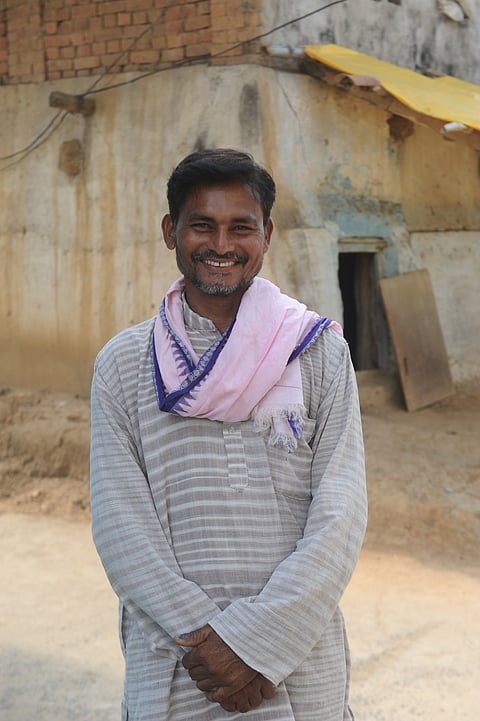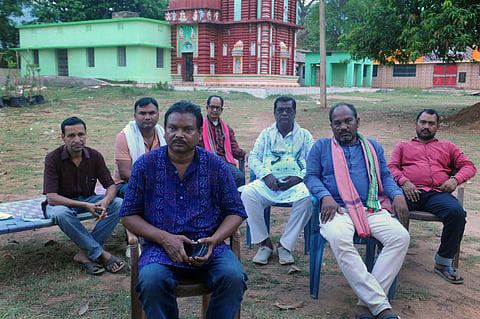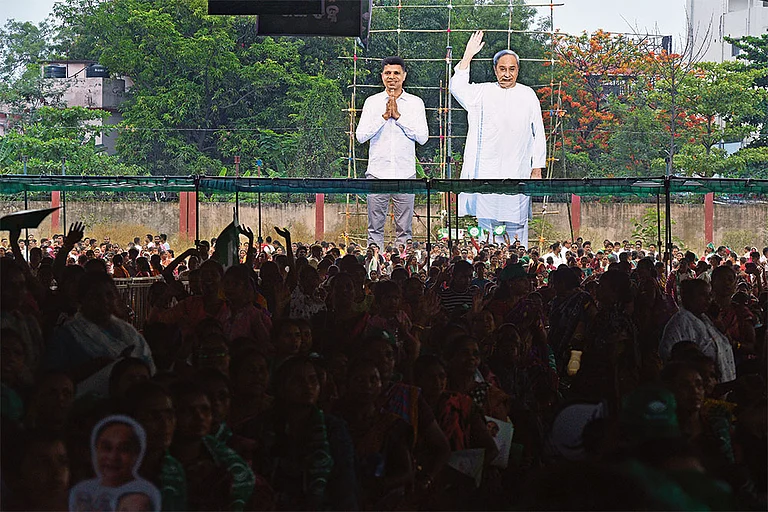Even as the Bharatiya Janata Party brought the long-standing demand of a higher minimum-support-price (MSP) into the electoral playing field in Odisha earlier this month by offering a per-quintal paddy MSP of 3,100 rupees, farmers in western Odisha have cast doubts on poll promises citing previous experiences. Leaders from local farmers’ groups called for sustainable solutions in an area that contributes to a large chunk of the state’s agricultural production.
Western Odisha: Distressed Farmers Demand Sustainable Solutions Amid Electoral Promises Of High MSP, Free Power
Politics over the minimum support price for paddy has heated up during the ongoing Odisha elections, but farmers' leaders point out deep-seated rural distress that has largely been ignored.
In its manifesto for the state, which is undergoing assembly polls along with voting for the ongoing Lok Sabha elections, the BJP has unveiled a special state-level scheme that vows to offer 3,100 rupees per quintal to paddy farmers “within 48-hours of purchase.” The scheme is modelled on neighbouring Chhattisgarh – where the BJP replaced the Congress in power in November – with the state government supplementing the 2,183 rupees/quintal MSP offered by the Centre with additional funds.
“(Prime Minister) Modi came here in Bargarh and offered a rupees 3,100 MSP to Odisha’s farmers, why does he not implement this across the country? They (the BJP) have earlier promised to link the MSP to the Swaminathan Committee report and waive off the loans of farmers. But this has still not been implemented,” Hara Bania, the district coordinator of Jai Kisan Andolan, tells Outlook in his village Sarkanda, situated about 20 km away from Bargarh.
After the BJP announcement, the Biju Janata Dal has stepped up attacks on its main adversary in the state, saying the PM’s announcement was a poll gimmick that came barely 10 days before the elections, and questioning the reason behind the centre not implementing a higher MSP earlier.

“The honourable PM could have taken the decision to raise the MSP within a minute but he has not. The fact is, CM Naveen Patnaik has been demanding that MSP on paddy be raised which the Centre has not paid heed to,” bureaucrat-turned-leaderVK Pandian, seen as Patnaik’s successor, said in a campaign meeting on Monday.
Congress, the third major force in the electoral fray in the eastern state, was the first to offer a higher MSP to the state’s farmers in its manifesto released in March, offering a per-quintal price of 3,000 rupees. However, the party has struggled to dominate the narrative amid an increasingly bipolar contest as the BJP has raised its attacks on the BJD leadership and announced a string of welfare schemes if elected.
Western Odisha has been a hotbed of farmers’ protests and politics in the state, especially the erstwhile Sambalpur district: now divided into Sambalpur, Bargarh, Jharsuguda and Deogarh districts. Popular mobilisation on agrarian issues here dates back to construction of Hirakud Dam on the Mahanadi in the 1950s, which brought irrigation to a sizeable part of the state but also resulted in massive displacement and allegations of mismanagement of water resources. Massive protests have been held in Sambalpur and Bargarh in the 1980s and 1990s over the demands for better irrigation and fair prices for crops
Bania, who has been involved in local farmers politics for over two decades, highlights the lack of a well-functioning market for the sale of paddy as the biggest problem for local farmers. The leader alleges that the existing official mandis has been captured by middlemen and owners and the process to sell the crop there is so difficult that farmers are forced to sell their produce in the open market, at reduced prices.
He cites a NSSO survey for 2017 that showed that a small-time farmer in Odisha earned barely 1,569 rupees per month from agriculture, which was insufficient to meet the family’s needs, and therefore they had to resort to wage labour. His organisation Jai Kisan Andolan, led by Yogendra Yadav and his associates at the national level, has raised the demand of implementation of the Swaminathan Committee report and has been campaigning against both the BJP and BJD during the elections, claiming that the two parties’ policies were similar and anti-farmer in nature.

The other major issue for the region’s rural population and farmers is the sharp increase in power tariffs since distribution was handed over to Tata Power three years ago. Farmers allege that bills for domestic consumption have surged by up to 10 times, touching 4,000-5,000 rupees a month in some cases. On the other hand, clearance of pending electricity bills has been made mandatory for paddy procurement.
The BJD in its manifesto has offered to provide up to 100 units of free electricity to every household after the elections, with the move being seen as a response to the paddy-MSP pitch by the BJP. However, the Jai Kisan Andolan in Odisha has demanded free electricity for farming activities and that paddy procurement be delinked from payment of power dues.
In the Padmapur block of the district, another farmers’ group has been campaigning from village to village urging voters to raise farming-related demands as candidates and parties come knocking on their doors. Their major demands include a 4,000 rupees/quintal MSP for paddy, and that if the centre fails to raise the central MSP, the state government should offer a 1,000 rupees bonus per quintal. They also have called for irrigation facilities across the region, a demand especially pertinent for locals as Padmapur is one of the most arid regions of the district.
“National parties such as BJP and Congress come to Odisha offering higher purchase prices to attract voters, but we are unable to believe them. Because both the parties have not fulfilled similar promises while being power at the centre. So we do not trust the poll manifestoes of any of the parties,” says Ramesh Mahapatra, executive committee member of the Samyukta Kisan Krishak Sangathan.
As part of the national and regional-level farmers’ federations, the group has also demanded the implementation of the Swaminathan report and that a law be brought to enforce and expand MSP. Settling claims of crop insurance for natural calamities is another major issue. Mahapatra alleges that in 2021, after a severe drought in the area, many of the farmers were unable to secure the input subsidy as part of crop insurance.
Iqbal Abhimanyu in Bargarh
